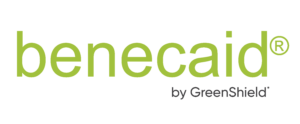
What is the role of employers when it comes to their employees’ healthcare? It used to be easily definable, but as time goes on, baby boomers start to retire in droves, and millennials start to make up more of the workforce, it’s no longer easy to make employee health plans that are beneficial for everyone. Aging baby boomers are going to need different care and perks than their millennial counterparts, who are more likely to be interested in yoga than orthotics. So where does this leave employers? Is it even possible to find a way to keep everyone happy?
Luckily, smart benefits providers have adapted to the times just like the workforce has, and are starting to offer a solution that works for everyone – and that’s what is coming to be known as employee-directed benefits. This new way of looking at workplace benefits empowers each employee to customize a plan that works for them at their current life stage – and the ability to reselect options every year as that changes with events like a marriage or the birth of a child. Offering employee-directed benefits, or consumer-directed healthcare plans, puts control back into the employees’ hands while still offering the guidance they need to make a more informed decision about their healthcare.
What Are Employee-Directed Benefits?
Employee-directed benefits are not a one-size-fits-all plan. They are a flexible solution that gives the employee control over their healthcare. It allows them to get the most value from their healthcare plan based on what is important to them. Under this type of plan, employees are able to customize their plans by choosing coinsurance levels or deductibles for example.
Often under employee-directed benefits, the employee will be offered a lower premium cost, but high-deductible, health plan that pairs with a spending account, such as a Health Spending Account (HSA). This spending account can be used to pay out-of-pocket healthcare costs and can even be used to cover the cost of their deductible. With this combination of a low premium, high-deductible plan and a spending account, the employee gets to decide how to allocate their funds to get the most benefit for their specific healthcare needs.
Benefits of Employee-Directed Benefits
For employers looking for flexible health benefits plans that meet the demands of the modern employee, employee-directed benefits can be an effective solution. Businesses will benefit from the fixed budget, lessened administrative burden, more satisfied employees, and an overall healthier workforce from higher utilization of a customized plan.
If you’re interested in learning how employee-directed benefits can make a positive impact on your business, contact your Benecaid Benefits Consultant or email us at advisors@benecaid.com.


Comments are closed.